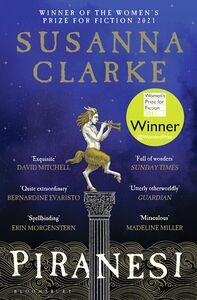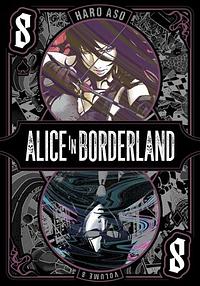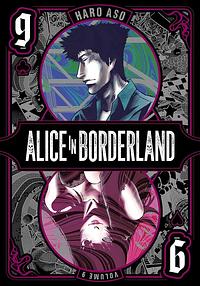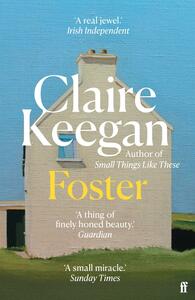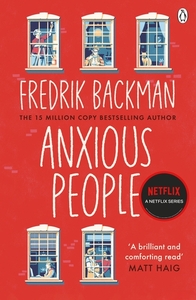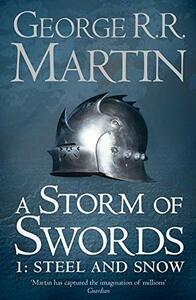Take a photo of a barcode or cover
lefttoread's Reviews (532)
Having followed Chris Carter's Robert Hunter series for 13 books now, The Death Watcher delivered a familiar and comforting experience for me. This series has become something of a go-to comfort read — its straightforward narrative style and gripping plots make it easy to follow and hard to put down. I particularly appreciate how Carter's background and experience lend authenticity to the story.
However, while The Death Watcher had the familiar elements I enjoy, I found it slightly less gripping than some of Carter's previous works. It lacked a bit of the intensity and edge that I’ve come to expect from his writing. Still, I had a good time with it overall.
However, while The Death Watcher had the familiar elements I enjoy, I found it slightly less gripping than some of Carter's previous works. It lacked a bit of the intensity and edge that I’ve come to expect from his writing. Still, I had a good time with it overall.
Long Bright River by Liz Moore is a refreshing departure from the typical thriller, a book that defies the conventions of the genre and emerges as a powerful piece of literary fiction. At first glance, I expected a straightforward thriller, but Moore delivers so much more. The novel is a beautifully written exploration of family, love, loss, and the complexities of the human experience, all set against the backdrop of Philadelphia's opioid crisis.
The writing is nothing short of exceptional. The narrative is split between the suspenseful search for a missing sister and a profound reflection on the bonds that tie people together, and it flows seamlessly between these two elements.
The characters in Long Bright River are incredibly well-rounded and realistic, especially the protagonist, Mickey Fitzpatrick. Mickey's journey is deeply emotional and compelling; she's flawed yet fiercely determined, a character who is easy to root for despite (or maybe because of) her imperfections. The relationship between Mickey and her estranged sister Kacey is the beating heart of the novel. It’s messy and painful, marked by betrayal and love, capturing the essence of what it means to care for someone who’s self-destructive.
What I loved most about this novel is how it transcends the boundaries of a typical thriller. Yes, there is mystery and suspense, but the story also offers a richly detailed, empathetic portrait of a community struggling with addiction and poverty. It’s a social commentary wrapped in a mystery.
If you're looking for a thriller with depth, nuance, and beautifully crafted characters, Long Bright River is a perfect choice. It’s different from the usual fast-paced, plot-driven thrillers—it’s more contemplative and haunting, lingering in your mind long after you turn the final page. I found myself unexpectedly moved and engrossed in this story, and I’m eager to read more books like this—thrillers that offer not just twists and turns, but also emotional depth and literary elegance. Highly recommended!
The writing is nothing short of exceptional. The narrative is split between the suspenseful search for a missing sister and a profound reflection on the bonds that tie people together, and it flows seamlessly between these two elements.
The characters in Long Bright River are incredibly well-rounded and realistic, especially the protagonist, Mickey Fitzpatrick. Mickey's journey is deeply emotional and compelling; she's flawed yet fiercely determined, a character who is easy to root for despite (or maybe because of) her imperfections. The relationship between Mickey and her estranged sister Kacey is the beating heart of the novel. It’s messy and painful, marked by betrayal and love, capturing the essence of what it means to care for someone who’s self-destructive.
What I loved most about this novel is how it transcends the boundaries of a typical thriller. Yes, there is mystery and suspense, but the story also offers a richly detailed, empathetic portrait of a community struggling with addiction and poverty. It’s a social commentary wrapped in a mystery.
If you're looking for a thriller with depth, nuance, and beautifully crafted characters, Long Bright River is a perfect choice. It’s different from the usual fast-paced, plot-driven thrillers—it’s more contemplative and haunting, lingering in your mind long after you turn the final page. I found myself unexpectedly moved and engrossed in this story, and I’m eager to read more books like this—thrillers that offer not just twists and turns, but also emotional depth and literary elegance. Highly recommended!
Valour, the second installment in John Gwynne's The Faithful and the Fallen series, is nothing short of a triumph, building on the foundation laid in "Malice" and taking everything up a notch. Gwynne's writing is both brutal and beautiful, with a pace that keeps readers on the edge of their seats. The stakes are higher, the conflicts more intense, and the character arcs even more compelling.
Gwynne excels at crafting a richly detailed fantasy world without overwhelming the reader with excessive world-building. Instead, he strikes the perfect balance, providing just enough detail to immerse us fully in the setting while keeping the focus on the unfolding drama. The backdrop of the Banished Lands, filled with prophecy, betrayal, and dark magic, is brought to life in a way that feels both vast and intimate.
But where Valour truly shines is in its characters. Gwynne continues to prove himself a master at creating complex, nuanced figures, each with their own motivations, flaws, and dreams. He delves deeper into their psyches, making us care for them, and fear for them. The character development in this novel is stellar, and their journeys feel authentic and hard-earned.
If Malice was an impressive debut, Valour solidifies John Gwynne's place as a standout voice in modern fantasy. This is a book where the battles are fierce, the choices are hard, and the consequences are real.
Gwynne excels at crafting a richly detailed fantasy world without overwhelming the reader with excessive world-building. Instead, he strikes the perfect balance, providing just enough detail to immerse us fully in the setting while keeping the focus on the unfolding drama. The backdrop of the Banished Lands, filled with prophecy, betrayal, and dark magic, is brought to life in a way that feels both vast and intimate.
But where Valour truly shines is in its characters. Gwynne continues to prove himself a master at creating complex, nuanced figures, each with their own motivations, flaws, and dreams. He delves deeper into their psyches, making us care for them, and fear for them. The character development in this novel is stellar, and their journeys feel authentic and hard-earned.
If Malice was an impressive debut, Valour solidifies John Gwynne's place as a standout voice in modern fantasy. This is a book where the battles are fierce, the choices are hard, and the consequences are real.
I find myself in a mixed space with Conversations with Friends by Sally Rooney. I understand why this novel has captivated so many readers, but I also see why others might not connect with it. For me, I landed somewhere in the middle.
What I enjoyed most about Conversations with Friends was Rooney's writing style. The prose is crisp and observant, filled with sharp dialogue and a sort of raw intimacy that pulls you into the characters' inner worlds. It has that distinct literary fiction feel that I’ve come to appreciate—stories that linger on the everyday moments and dig deep into the complexity of human relationships. Rooney's storytelling kept me intrigued throughout; I never found myself wanting to put the book down.
However, the issue I had was with the characters themselves. All of them felt somewhat unlikable, and their actions were often morally ambiguous or simply puzzling. Now, I have no problem with unlikable characters—in fact, I’ve enjoyed such dynamics in the past, like in The Secret History by Donna Tartt. But where The Secret History balanced its flawed characters with an underlying sense of obsession, mystery, and a rich, almost atmospheric tension, Conversations with Friends seemed to lack that same redeeming quality. There wasn’t much to hold onto beyond the characters' introspections and complicated interactions.
That said, I am open to reading more from Rooney in the future. She has a unique voice that kept me engaged.
What I enjoyed most about Conversations with Friends was Rooney's writing style. The prose is crisp and observant, filled with sharp dialogue and a sort of raw intimacy that pulls you into the characters' inner worlds. It has that distinct literary fiction feel that I’ve come to appreciate—stories that linger on the everyday moments and dig deep into the complexity of human relationships. Rooney's storytelling kept me intrigued throughout; I never found myself wanting to put the book down.
However, the issue I had was with the characters themselves. All of them felt somewhat unlikable, and their actions were often morally ambiguous or simply puzzling. Now, I have no problem with unlikable characters—in fact, I’ve enjoyed such dynamics in the past, like in The Secret History by Donna Tartt. But where The Secret History balanced its flawed characters with an underlying sense of obsession, mystery, and a rich, almost atmospheric tension, Conversations with Friends seemed to lack that same redeeming quality. There wasn’t much to hold onto beyond the characters' introspections and complicated interactions.
That said, I am open to reading more from Rooney in the future. She has a unique voice that kept me engaged.
Piranesi is a novel that thrives on atmosphere and vibes, and it absolutely delivers in that department. From the very first page, Susanna Clarke immerses you in a world that is at once mysterious, enchanting, and strangely serene. The story unfolds in a labyrinthine house filled with endless halls, statues, and the echoing sound of the sea—a setting so vividly imagined that it becomes a character in its own right. It’s a place where you can feel the cold marble beneath your feet, hear the distant roar of the tides, and sense the sheer expansiveness of the world Clarke has crafted.
What truly makes Piranesi special is its pacing. The story is slow in the most beautiful way, unfolding gradually and purposefully, never dragging but instead allowing you to savor every detail. It's a shorter novel, which works to its advantage—you can easily read it in a day, as I did, and find yourself entirely absorbed in its quiet mystery. There's a meditative quality to the narrative that makes you want to linger in its halls just a little longer, piecing together the secrets of this strange and compelling world.
Clarke's writing is unique and deeply atmospheric, and the story is unlike anything I've read before. It has a kind of quiet magic that is hard to describe but impossible to forget. It’s fun in a way that is subtle and profound, not reliant on grand gestures or fast-paced action, but on the power of curiosity, discovery, and the sheer joy of being transported somewhere wholly other.
If you love books that prioritize mood and setting, that draw you in with their ambiance, and that leave you with a sense of wonder and mystery, Piranesi is an absolute must-read. It’s a book I can see myself returning to again and again in the future.
What truly makes Piranesi special is its pacing. The story is slow in the most beautiful way, unfolding gradually and purposefully, never dragging but instead allowing you to savor every detail. It's a shorter novel, which works to its advantage—you can easily read it in a day, as I did, and find yourself entirely absorbed in its quiet mystery. There's a meditative quality to the narrative that makes you want to linger in its halls just a little longer, piecing together the secrets of this strange and compelling world.
Clarke's writing is unique and deeply atmospheric, and the story is unlike anything I've read before. It has a kind of quiet magic that is hard to describe but impossible to forget. It’s fun in a way that is subtle and profound, not reliant on grand gestures or fast-paced action, but on the power of curiosity, discovery, and the sheer joy of being transported somewhere wholly other.
If you love books that prioritize mood and setting, that draw you in with their ambiance, and that leave you with a sense of wonder and mystery, Piranesi is an absolute must-read. It’s a book I can see myself returning to again and again in the future.
I loved this volume. Following one of my favourite characters from the series, and the show did this particular part of the story justice. The series is coming to an end, it's intense and beautiful.
The TV adaptation to this series made me read the manga, the adaptation stayed true to the books, which I love. I adore the series with my whole heart, a cast of characters I'll never forget, a masterful story I'll want to come back to again and again, I just wish it was more popular than it is. I'll keep recommending it to others. I especially like to recommend this series to newbies to manga as that was me when I first begun this journey and I've never looked back.
A simple, emotional short story. This is why I've turned to loving literary fiction.
Anxious People by Fredrik Backman is yet another testament to this author's incredible storytelling ability. While it might not have left me in tears like some of his other works, it's still a captivating read that showcases Backman's signature style: beautifully crafted prose, unforgettable characters, and an emotional storyline that keeps you hooked from start to finish.
The novel, centered around a hostage situation gone hilariously awry, dives deep into the messiness of human emotions, relationships, and the sometimes ridiculous ways we cope with life's challenges. The characters are well-developed and relatable, each with their quirks and hidden depths, and the way their lives intersect feels genuine and heartfelt.
While Anxious People may not have hit me quite as hard emotionally as some of his other works, it’s still a fantastic read from an author who, in my opinion, never misses. I'm so glad I discovered Fredrik Backman; he remains one of the best voices in the literary fiction world today. This book reinforces why he is a favorite author of mine—he consistently delivers stories that are thoughtful, engaging, and ultimately very human. A wonderful addition to his impressive body of work.
The novel, centered around a hostage situation gone hilariously awry, dives deep into the messiness of human emotions, relationships, and the sometimes ridiculous ways we cope with life's challenges. The characters are well-developed and relatable, each with their quirks and hidden depths, and the way their lives intersect feels genuine and heartfelt.
While Anxious People may not have hit me quite as hard emotionally as some of his other works, it’s still a fantastic read from an author who, in my opinion, never misses. I'm so glad I discovered Fredrik Backman; he remains one of the best voices in the literary fiction world today. This book reinforces why he is a favorite author of mine—he consistently delivers stories that are thoughtful, engaging, and ultimately very human. A wonderful addition to his impressive body of work.
Returning to George R.R. Martin's A Storm of Swords: Part One was a mixed experience for me. It’s been a while since I last tried to make my way through the series, but I felt a desire to revisit the world of Westeros and see if I could rediscover the magic that captivated me in "A Game of Thrones." And that first book still holds up brilliantly. It's a masterpiece of fantasy storytelling.
However, my experience with A Clash of Kings left a shadow over my enthusiasm. On both attempts, I found myself bogged down in the dense political maneuvering that seemed to overshadow the fantastical elements I had come to love. The tension and intrigue of the first book gave way to a seemingly endless game of political chess, and for me, that was where the series began to lose its spark.
A Storm of Swords: Part One is an improvement, but it continues in the vein of its predecessor. The political maneuverings remain front and center, with power struggles and courtly intrigues taking precedence over the more magical elements of the world. I found myself yearning for the fantasy I was promised at the start—a world where direwolves, White Walkers, and dragons loom large. Instead, these elements feel more like occasional flourishes rather than the driving force of the narrative.
Part of me wonders if the lingering disappointment of A Clash of Kings is affecting my perception of this book. Or perhaps it's simply that the series, after that stunning opening, isn't quite what I wanted it to be. I had hoped for an epic fantasy adventure, but what I've found is more akin to a gritty political drama with some dragons thrown in for good measure. And honestly, that’s just not what I was hoping for.
For those who enjoy the intricate political plots and the morally grey characters that Martin so expertly crafts, A Storm of Swords: Part One will likely be a rewarding read. For me, though, it feels like the series lost its way somewhere after that first, brilliant installment. And I'm left unsure if it’s worth pushing forward when the magic of that initial experience seems to have faded.
However, my experience with A Clash of Kings left a shadow over my enthusiasm. On both attempts, I found myself bogged down in the dense political maneuvering that seemed to overshadow the fantastical elements I had come to love. The tension and intrigue of the first book gave way to a seemingly endless game of political chess, and for me, that was where the series began to lose its spark.
A Storm of Swords: Part One is an improvement, but it continues in the vein of its predecessor. The political maneuverings remain front and center, with power struggles and courtly intrigues taking precedence over the more magical elements of the world. I found myself yearning for the fantasy I was promised at the start—a world where direwolves, White Walkers, and dragons loom large. Instead, these elements feel more like occasional flourishes rather than the driving force of the narrative.
Part of me wonders if the lingering disappointment of A Clash of Kings is affecting my perception of this book. Or perhaps it's simply that the series, after that stunning opening, isn't quite what I wanted it to be. I had hoped for an epic fantasy adventure, but what I've found is more akin to a gritty political drama with some dragons thrown in for good measure. And honestly, that’s just not what I was hoping for.
For those who enjoy the intricate political plots and the morally grey characters that Martin so expertly crafts, A Storm of Swords: Part One will likely be a rewarding read. For me, though, it feels like the series lost its way somewhere after that first, brilliant installment. And I'm left unsure if it’s worth pushing forward when the magic of that initial experience seems to have faded.




